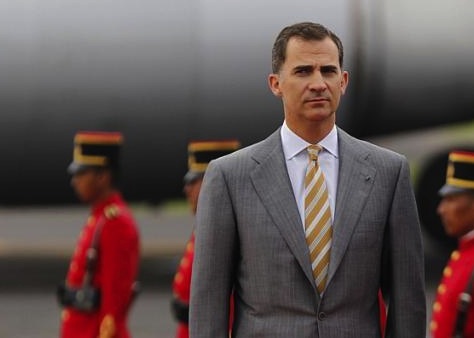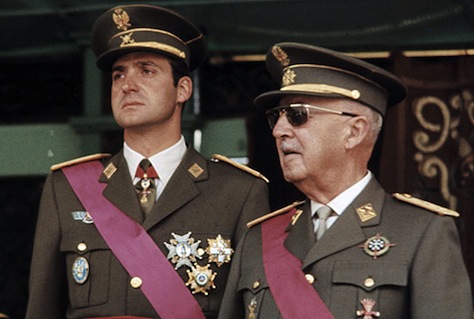He’s a disarmingly handsome economics professor, and he’s the first major Spanish party leader who grew up chiefly in the post-Franco era and in the era of Spanish democracy.![]()
But Pedro Sánchez, who leapfrogged the more well-known Eduardo Madina to become the leader of Spain’s Partido Socialista Obrero Español (PSOE, Spanish Socialist Workers’ Party) earlier this month, and who will assume the leadership later this week, will have his work cut out for him before elections that will take place within the next 17 months, with the party’s traditional voting base increasingly supporting both new and established alternatives on the Spanish left.
Sánchez (pictured above), just 42 years old, has only been a member of the Congreso de los Diputados (Congress of Deputies), the lower house of the Spanish parliament, the Cortes Generales, from 2009 to 2011 and since January 2013, representing Madrid, where he served as a city councillor for the preceding five years.
Sánchez won the PSOE’s first direct contest to elect the party’s general secretary in a three-way race, with 48.7% of all votes against just 36.1% for Madina and 15.1% for the more left-wing José Antonio Pérez Tapias.
Though Madina, at age 38, is even younger than Sánchez, he’s been a member of the Congress of Deputies since 2004 and the secretary-general of the PSOE’s congressional caucus since 2009. A Basque federalist, he was perceived as the frontrunner in the race, especially after taking a republican stand in the aftermath of Juan Carlos I’s abdication from the throne. But the favorite to lead the PSOE, Andalusia’s 39-year-old regional president, Susana Díaz, endorsed Sánchez instead, as did many former officials from the administration of former prime minister José Luis Rodríguez Zapatero, including former public works and transportation minister José Blanco.
That effectively lifted the more unknown Sánchez, who holds a doctorate in economics, above Madina, who once lost part of his left leg in a Basque nationalist bomb blast.
On his election, Sánchez declared the ‘beginning of the end of Rajoy,’ challenging the unpopular center-right government of prime minister Mariano Rajoy, which has presided over the worst of Spain’s recent economic crisis.
Not so fast. Continue reading New PSOE leader Sánchez faces uphill struggle to unite Spanish left



